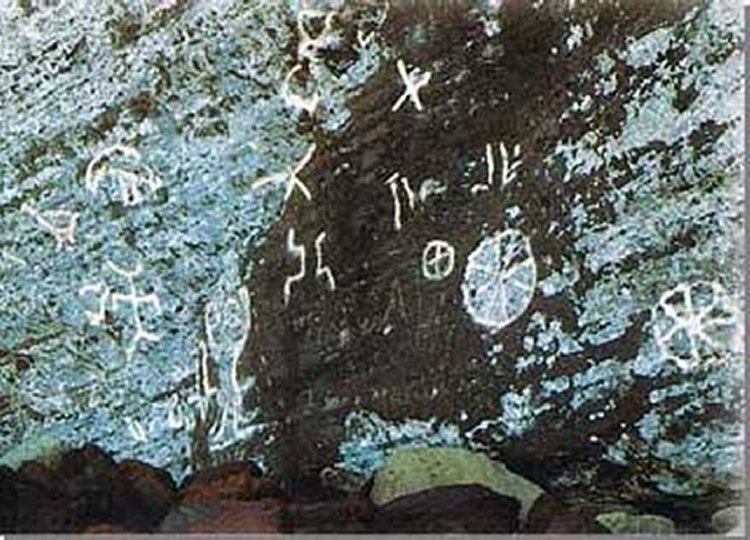Binary System Was Used By Ancient Polynesians 1,000 Years Before The Concept Of A Computer Was Introduced
A. Sutherland - AncientPages.com - Researchers say that our binary system is nothing but a re-invention based on ancient knowledge that existed centuries before the concept of a computer.
 1827 depiction of Tahitian pahi double-hulled war canoes. Engraved by Fumagalli. Plate N° 86; after an earlier artist. source
1827 depiction of Tahitian pahi double-hulled war canoes. Engraved by Fumagalli. Plate N° 86; after an earlier artist. source
When the German mathematician Gottfried Leibniz demonstrated the advantages of the binary system for computations as early as 1703, he laid the foundation for computing machines.
However, Leibnitz was not the first person to use binary numbers.
Researchers in Norway made this astonishing discovery after studying the language of the tiny Pacific island of Mangareva in French Polynesia. The residents of the island of Mangareva in French Polynesia were using a hybrid binary-decimal system before 1450.
One of two number systems traditionally used on Mangareva had three binary steps superposed onto a decimal structure.
The Mangarevan invention of binary steps, centuries before their formal description by Leibniz, attests to the advancements possible in numeracy even in the absence of notation and thereby highlights the role of culture in the evolution of and diversity in numerical cognition.
"Polynesian seafarers left Mangareva around AD 800 in search of quality stone for vital tools and found success on Pitcairn. Trade flourished between the islands, settlers made rough stone gods, carved human, animal, and geometric images on rock canvasses, created burial sites, and left many artifacts. The Bounty mutineers arrived in 1790 and found their temple platforms, petroglyphs, and stone tools giving evidence (and confirmed by Marshall Weisler) that Pitcairn had formerly supported an ancient Polynesian population, most probably from Mangareva..." according to the source.
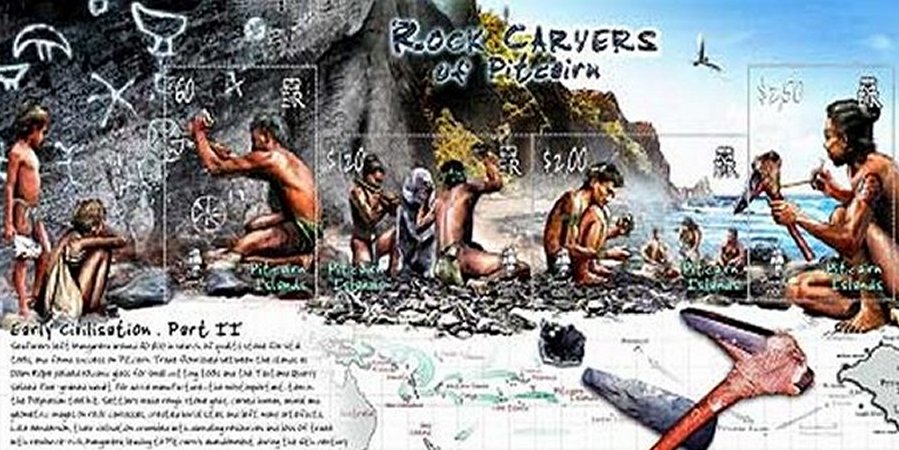 Image credit: Pitcairn Islands Philatelic Bureau
Image credit: Pitcairn Islands Philatelic Bureau
More than 300 years ago, the German mathematician and philosopher Gottfried Wilhelm Leibniz demonstrated the computational advantages of a binary number system, or base 2.
Although Leibniz's groundbreaking theory laid the foundation for computing with machines, humans continue to utilize verbal number systems built on base 10, raising the question of whether binary numeration is compatible with human cognition.
Pure binary arithmetic works according to the 'base two' system - '1's and '0's, rather than the conventional 'base 10' - 1,2,3,4,5, etc. - the counting system, which many cultures think of to have used due to counting on ten fingers.
Now, a new discovery questions the origin of the binary system and the date of its invention.
Andrea Bender, a cognitive scientist, and Sieghard Beller at the University of Bergen in Norway looked at the number systems in related Polynesian languages. Their research appears in the Proceedings of the National Academy of Sciences.
They discovered that the Polynesians who arrived in Mangareva over 1,000 years ago used a decimal system, as other Polynesians did. However, by A.D. 1450, the Mangarevans were using a procedure that combined base 10 and base 2. In the Mangarevan language, there are words for the numbers 1 through 9, as with all decimal systems.
For numbers 20 to 80, ancient Polynesians used a binary system with separate one-word terms for 20, 40, and 80.
Ancient Polynesian rock carvings. Image credit: Pitcairn Islands Philatelic Bureau
"Those were probably the numbers that were most frequent in their trading and redistribution systems. For that specific range, it was helpful to have these binary steps that make mental arithmetic much easier.
They did not have a writing or notational system, so they had to do everything in their mind, said Andrea Bender.
This system evolved to help people solve complex mental arithmetic and played a vital role in Mangarevan culture, where people often traded large quantities of goods or offered them as tribute. The Mangarevans used their system to count precious objects, including coconuts, fish, and octopuses.
We have always assumed Leibniz was the first to introduce the binary system. Still, this recent discovery clearly shows ancient people were familiar with binary numbers a very long time ago, and we have only re-invented the method we use today.
Currently, the Mangarevan language risks extinction, and the locals use the Arabic digits and the decimal counting system used in large parts of the world.
Written by – A. Sutherland - AncientPages.com Senior Staff Writer
Updated on November 13, 2022
Copyright © AncientPages.com All rights reserved. This material may not be published, broadcast, rewritten or redistributed in whole or part without the express written permission of AncientPages.com
Expand for referencesMore From Ancient Pages
-
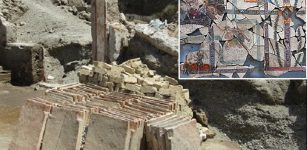 Pompeii Region IX: Roman Advanced Construction Techniques In New Light
Archaeology | Mar 27, 2024
Pompeii Region IX: Roman Advanced Construction Techniques In New Light
Archaeology | Mar 27, 2024 -
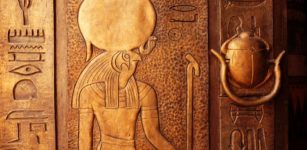 Sun God Ra Was Venerated In Every Age Of Ancient Egypt’s Long Dynastic History
Egyptian Mythology | May 3, 2021
Sun God Ra Was Venerated In Every Age Of Ancient Egypt’s Long Dynastic History
Egyptian Mythology | May 3, 2021 -
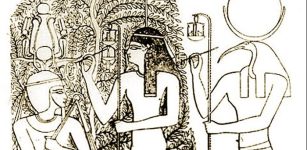 Heliopolis ‘Sun City’ Was One Of The Most Ancient Cities Of Egypt
Featured Stories | Oct 6, 2021
Heliopolis ‘Sun City’ Was One Of The Most Ancient Cities Of Egypt
Featured Stories | Oct 6, 2021 -
 On This Day In History: George Plantagenet Privately Executed At The Tower Of London – On Feb 18, 1478
News | Feb 18, 2017
On This Day In History: George Plantagenet Privately Executed At The Tower Of London – On Feb 18, 1478
News | Feb 18, 2017 -
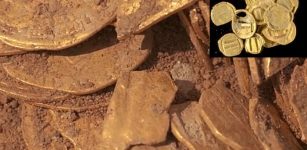 Rare Trove Of 1,100-Year-Old Gold Coins Found By Teenagers In Central Israel
Archaeology | Aug 29, 2020
Rare Trove Of 1,100-Year-Old Gold Coins Found By Teenagers In Central Israel
Archaeology | Aug 29, 2020 -
 Unearthing South Australia’s Oldest Known Shipwreck: The Bark South Australian (1837)
Archaeology | Aug 16, 2023
Unearthing South Australia’s Oldest Known Shipwreck: The Bark South Australian (1837)
Archaeology | Aug 16, 2023 -
 Very Rare Ancient Roman Horse Brooch Discovered In UK
Archaeology | Mar 7, 2020
Very Rare Ancient Roman Horse Brooch Discovered In UK
Archaeology | Mar 7, 2020 -
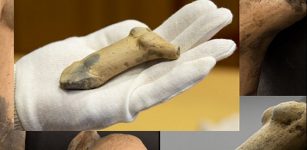 Fragments Of 6,500-Year-Old Figurine Of ‘Venus of Egerszeg’ – Unearthed
Archaeology | Jul 21, 2020
Fragments Of 6,500-Year-Old Figurine Of ‘Venus of Egerszeg’ – Unearthed
Archaeology | Jul 21, 2020 -
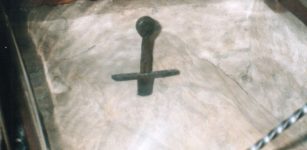 Mystery Of The Real Sword: How Did A Meter Long Sword End Up In Solid Rock?
Artifacts | Apr 15, 2019
Mystery Of The Real Sword: How Did A Meter Long Sword End Up In Solid Rock?
Artifacts | Apr 15, 2019 -
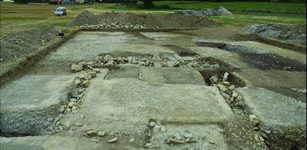 Stone Homes Of Europe’s First Megalithic Builders Discovered
Archaeology | Feb 22, 2023
Stone Homes Of Europe’s First Megalithic Builders Discovered
Archaeology | Feb 22, 2023 -
 Historian Suggests Jack The Ripper Fled To Australia Where He Met His End
Archaeology | Sep 10, 2016
Historian Suggests Jack The Ripper Fled To Australia Where He Met His End
Archaeology | Sep 10, 2016 -
 Strange Ancient Measurements Of The Earth Revealed – Ancient Texts And Physical Evidence Examined
Featured Stories | Apr 11, 2018
Strange Ancient Measurements Of The Earth Revealed – Ancient Texts And Physical Evidence Examined
Featured Stories | Apr 11, 2018 -
 On This Day In History: Seismologist Charles Richter Was Born – On Apr 26, 1900
News | Apr 26, 2016
On This Day In History: Seismologist Charles Richter Was Born – On Apr 26, 1900
News | Apr 26, 2016 -
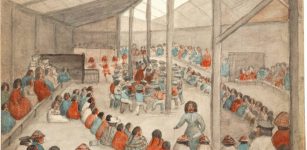 Potlatch: Ancient North American Indian Tradition Of Very Generous Gift Giving
Ancient Traditions And Customs | Sep 12, 2016
Potlatch: Ancient North American Indian Tradition Of Very Generous Gift Giving
Ancient Traditions And Customs | Sep 12, 2016 -
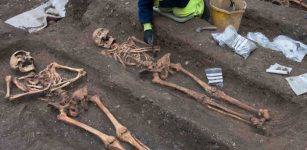 Medieval Friars Were ‘Riddled With Parasites,’ Study Finds
Archaeology | Aug 19, 2022
Medieval Friars Were ‘Riddled With Parasites,’ Study Finds
Archaeology | Aug 19, 2022 -
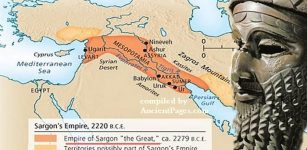 Several Climate Crises In Mesopotamia – New Study
Archaeology | Apr 28, 2021
Several Climate Crises In Mesopotamia – New Study
Archaeology | Apr 28, 2021 -
 Saqqara New Discoveries: Fifth Dynasty’s Pyramid Complex That Belonged To Queen Setibhor
Archaeology | Apr 15, 2019
Saqqara New Discoveries: Fifth Dynasty’s Pyramid Complex That Belonged To Queen Setibhor
Archaeology | Apr 15, 2019 -
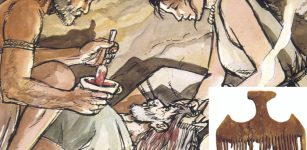 Evidence Of Hallucinogenic Drug Use During Bronze Age Ceremonies Found
Archaeology | Apr 6, 2023
Evidence Of Hallucinogenic Drug Use During Bronze Age Ceremonies Found
Archaeology | Apr 6, 2023 -
 Stunning CGI Reconstruction Of Saint Thomas Becket’s Shrine
Archaeology | Jul 7, 2020
Stunning CGI Reconstruction Of Saint Thomas Becket’s Shrine
Archaeology | Jul 7, 2020 -
 Look Inside A Restored Pompeii House – A Unique Glimpse Into Life In Italy’s Ancient City
Archaeology | Jan 11, 2023
Look Inside A Restored Pompeii House – A Unique Glimpse Into Life In Italy’s Ancient City
Archaeology | Jan 11, 2023

